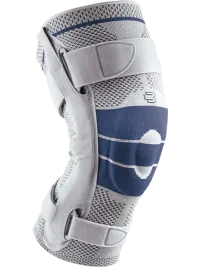
Slipped or Ruptured Disk
Ruptured Disks Can Happen to Anyone
A herniated disk, often referred to as a ruptured disk, can develop at any point along the spine, but it is most commonly found in the lower back. This condition is a leading cause of lower back pain and can also result in leg pain or sciatica.
Statistics show that between 60 and 80% of individuals will experience low back pain at some point in their lives, with some of these cases linked to a herniated disk causing both back and leg discomfort.
While a herniated disk can be quite painful, the good news is that most individuals experience significant relief after just a few weeks or months of nonsurgical treatment.
Causes
A herniated disk typically occurs due to the natural wear and tear on the spine that comes with aging, a process known as disk degeneration.
Risk Factors
Several factors may increase your risk of a herniated disk. These include:
- Gender: Men aged 20 to 50 are at a higher risk for herniated disks.
- Improper Lifting: Relying on your back muscles instead of your legs to lift heavy objects can lead to a herniated disk. Additionally, twisting while lifting can further compromise your back.
- Being Overweight
- Engaging in Reptitive Activities: Many jobs require employees to lift, pull, bend or twist all day long. It is important to use safe movement techniqies to protect your back
- Sedentary Lifestyle: Staying seated for long periods of time and poor posture while seated increase your chances of herniating a disk.
- Smoking: Scientific studies show a correlation between lowered oxygen supply to disks and smoking and increases the speed at which disk degeneration occurs.
to learn more about please visit: Smoking and Musculoskeletal Health
Symptoms of Disk Herniation or Rupture
- Shooting pain that begins in the back or buttocks and radiates down the leg - this is called sciatica
- Numbness or Tingling in the leg or foot
- Noticeable change in strength or sudden onset of weakness in the arms or legs
- Loss of Bladder Control - if you experience this symptom please seek immediate medical attention
Treatment
Most disk herniations can be treated non-surgically. Commonly doctors will recommend:
- Rest
- Changes to you daily activities to limit prolonged seating, repeated twisting, bending and lifting
- Physical Therapy
- Non-Steroidal Anti-Inflammatory Medications (NSAIDs)
- Epidural Steroid Injections
Only a small percentage of patients that experience a disk injury will require surgery. Patients should consult with their physician to determine if surgery is their best option.
You can read more about Disk Degeneration on the AAOS Website.
